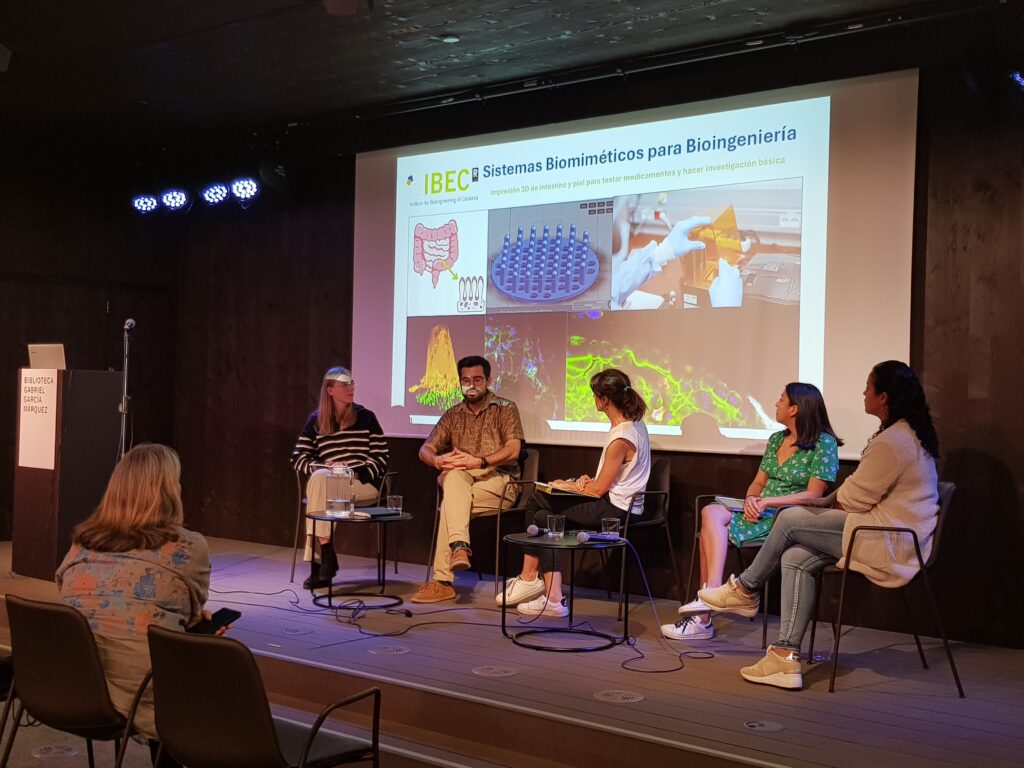As every year, the European Researchers’ Night takes place in the last week of September, and once again the B-BRIGHTER project was present. This year, Marcel Sorribas took part in a round table on the use of animals in research. In addition, an infographic explaining the project is available on the Catalan website of the event.

Last 25th of September, Marcel Sorribas, B-BRIGHTER researcher at the Institute for Bioengineering of Catalonia (IBEC) participated in the round table titled “Animal welfare VS human welfare: To what extent do we want to protect them?”. The event was held at the awarded library Gabriel García Márquez in Barcelona and counted with the participation of five researchers from different fields.
The discussion began with examples of the use of animals in the time of Aristotle, then in the last century with the discovery of antibiotics, insulin… Afterwards one of the participants explained the procedure that both the researcher and the project have to go through before being able to work with animals. They also pointed out that national drug agencies no longer require animal testing if there is an alternative to validate the new drug.
One of the assistants raised the question of the extent to which we humans have the right to use other animals for our own progress as a society, sparking off a very interesting debate: would it not be more ethical to move more slowly but without having to slaughter animals?
Finally, the floor was opened to show the alternatives to animal testing that exist today. In this context, Marcel Sorribas shared his experiences with the use of animals in research and introduced the concept of 3D bioprinting to the audience. He gave examples of the B-BRIGHTER project and the printing of skin and intestines in the laboratory to replace animals in experiments. He emphasised that these are also tissues made from human cells and that they are much closer to reality than experiments on animals of other species. Another example cited by other researchers was the use of organs on a chip, in which we can ‘simulate’ different organs, study the connections between them and analyse their response to different treatments.
In addition, B-BRIGHTER project was also showcased on the Catalan website of the European Researchers’ Night, which offers information about several European projects being carried out in the region. To access this website (in English) click here.
